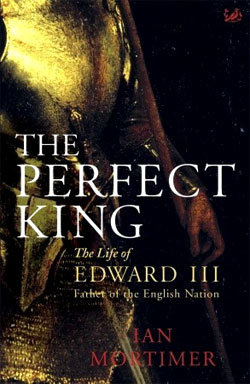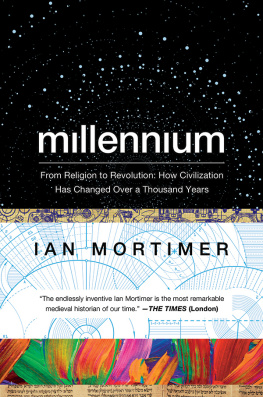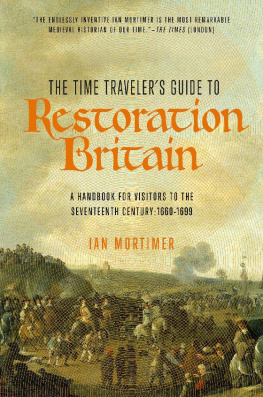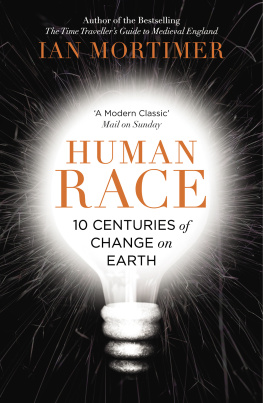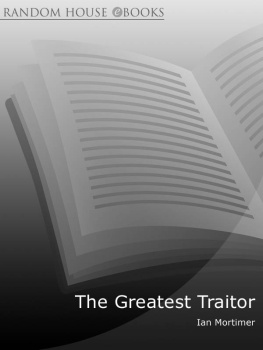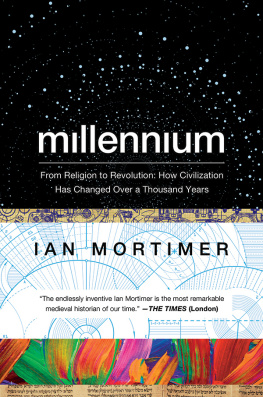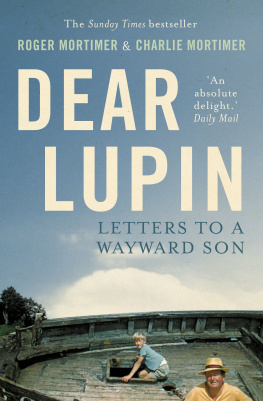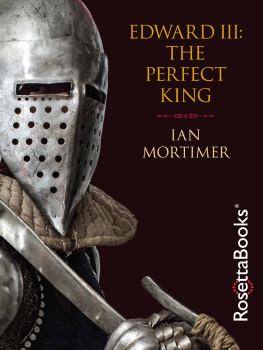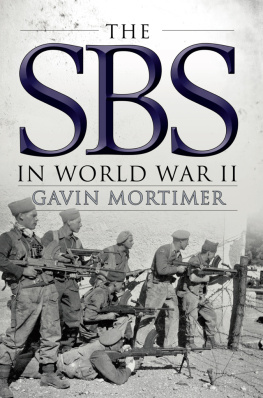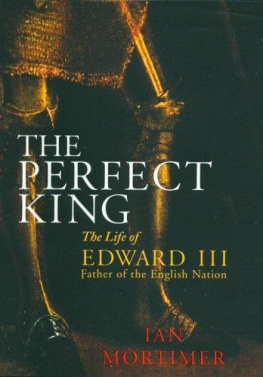Ian Mortimer - The Perfect King
Here you can read online Ian Mortimer - The Perfect King full text of the book (entire story) in english for free. Download pdf and epub, get meaning, cover and reviews about this ebook. year: 2006, publisher: ePub Bud, genre: Art. Description of the work, (preface) as well as reviews are available. Best literature library LitArk.com created for fans of good reading and offers a wide selection of genres:
Romance novel
Science fiction
Adventure
Detective
Science
History
Home and family
Prose
Art
Politics
Computer
Non-fiction
Religion
Business
Children
Humor
Choose a favorite category and find really read worthwhile books. Enjoy immersion in the world of imagination, feel the emotions of the characters or learn something new for yourself, make an fascinating discovery.
- Book:The Perfect King
- Author:
- Publisher:ePub Bud
- Genre:
- Year:2006
- Rating:3 / 5
- Favourites:Add to favourites
- Your mark:
- 60
- 1
- 2
- 3
- 4
- 5
The Perfect King: summary, description and annotation
We offer to read an annotation, description, summary or preface (depends on what the author of the book "The Perfect King" wrote himself). If you haven't found the necessary information about the book — write in the comments, we will try to find it.
The Perfect King — read online for free the complete book (whole text) full work
Below is the text of the book, divided by pages. System saving the place of the last page read, allows you to conveniently read the book "The Perfect King" online for free, without having to search again every time where you left off. Put a bookmark, and you can go to the page where you finished reading at any time.
Font size:
Interval:
Bookmark:
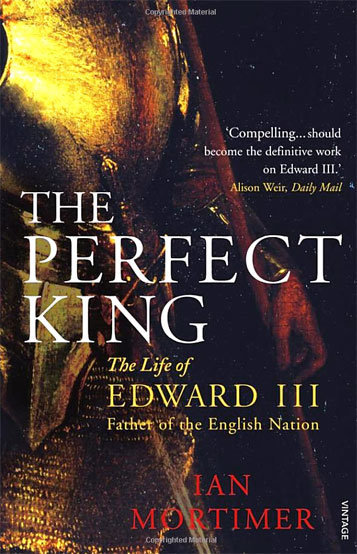
By Ian Mortimer
SUMMARY:
King for 50 years (1327-77), Edward III - like Elizabeth and Victoria after him - embodied the values of his age. He re-made England and forged a nation out of war.
Ian Mortimer has BA and PhD degrees in history from Exeter University and an MA in archive studies from University Colle ge London. From 1991 to 2003 he worked in turn for Devon Record Office, Reading University, the Royal Commission on Historical Manuscripts, and Exeter University. He was elected a Fellow of the Royal Historical Society in 1998. In 2003 the first of his medieval biographies, The Greatest Traitor was published by Jonathan Cape. He was awarded the Alexander Prize (2004) by the Royal Historical Society for his work on the social history of medicine. He lives with his wife and three children on the edge of Dartmoor.
'His book favourably reassesses Edward's career and his impact on English history, and refutes the calumnies of Victorian historians, who were apt to decry him as a tax-hungry warmonger and focus on the humiliations of his last years'
Alison Weir, Daily Mail
'This is a story which - for its boldness of interpretation, success of evoking the vanished medieval world, and sheer narrative elan - deserves to be widely read' John Adamson, Sunday Times
'The pace, commitment, and gusto of his writing... give his narrative real momentum. He has a talent for summoning up the scenes of Edward's military triumphs with immediacy and verve, and he relishes the king's role not only as a diplomat and strategist, but also as an intelligent patron of the arts, architecture and technological innovation' Helen Castor, Sunday Telegraph
'Mortimer argues that [Edward III] was a great man and a great king. It is hard to disagree' Jane Stevenson, Scotland on Sunday
'Mortimer... writes with enthusiasm and real knowledge ... He can write an excellent narrative account of a battle' Richard Barber, Literary Review
AUTHOR'S NOTE
This book deliberately employs the ambiguous use of the term Gascony to describe the English-ruled territory in the south-west of France, in keeping with most books on the fourteenth century. The duchy of Aquitaine as inherited from Eleanor of Aquitaine - was far more extensive than Gascony but there were times when English authority was squeezed and the two were practically synonymous. It would be convenient to use just the one word to describe the duchy and its extensions, and there is one - Guienne - but it is very rarely used, even by scholars, and would look very odd in a biography. So, in order to avoid the awkward adjective Aquitainian' and the even more awkward 'Guiennese', two terms have been used: Aquitaine for the tide of the duchy and (later) principality, and 'Gascony' and 'Gascon' when referring to the region generally.
Most English surnames which include 'de' in the original source have been simplified, with the silent loss of the 'de'. Where it remained traditionally incorporated in the surname (e.g. de la Pole, de la Beche, de la Ware) these have been retained. 'De' has generally been retained in French names (e.g. de Harcourt, de Montfort, de Blois). With Italian names, 'de' has normally been retained (e.g. del Caretto, de Controne, de Sarzana) but where it is customary not to keep it (e.g. Fieschi, Forzetti) it has been dropped.
With regard to international currency, the gold florin fluctuated greatl y over the period covered by this book. According to the Handbook of Medieval Exchange, it was worth as little as 2s 8d in 1346 and as much as 4s in 1332 and 1338. It was also worth different amounts in different places at the same time, and could even be worth different amounts in the same place at the same time. Very roughly speaking, one florin was usually worth slightl y more than 3s prior to 1340 and slig htl y less than 3s thereafter. Many other writers use the rate of florin = 3s 4d, as this allows the easy conversion of florins = In this book this rate is used up to 1340 and the slightly more accurate rate of florin = 3s is used after that year, which implies a conversion of 6.67 florins = The other unit of international accounting used in this book, the mark, was a constant 13s 4d.
ACKNOWLEDGEMENTS
It is impossible to write a book like this without incurring a number of debts of gratitude. I hope that readers will not begrudge me here mentioning the names of my agent, James Gill, and my editors, Will Sulkin and Jorg Hensgen. I am also very grateful to two scholars for their assistance: Dr Paul Dryburgh, who surveyed many of the wardrobe accounts for me in the research stages, and Professor Mark Ormrod of the University of York, who provided me with many valuable hints, photocopies, offprints and references when the book was in a draft form. I would also like to thank staff at the National Archives, the British Library, Exeter University Library, Gloucestershire Record Office, the National Portrait Gallery Archive, Warwickshire County Record Office and Westminster Abbey Library. I am grateful to all those who provided me with accommodation when undertaking research, namely: Zak Reddan and Mary Fawcett, Jay Hammond, Robert and Julie Mortimer, Susannah Davis and Anya Francis. I acknowledge the support of the K Blundell Trust, administered by the Society of Authors, who gave me a grant in the course of writing this book. Finally, I want to say a huge thank you to my family - Sophie, especially, but also Alexander, Elizabeth, and Oliver - for keeping me going.
Ian Mortimer
Moretonhampstead
May 2005
He who loves peace, let him prepare for war.
Fla vius Vegetius Renatus,
writer on warfare (c. 375)
According to the Theory of War, which teaches that the best way to avoid the inconvenience of war is to pursue it away from your own country, it is more sensible for us to fight our notorious enemy in his own realm, with the joint power of our allies, than it is to wait for him at our own doors.
King Edward III (1339)
When you don't fight, you lose.
Lesze k Miller, Prime Minister of Poland (2003)
INTRODUCTION
On October 1330, at dusk, two dozen men gathered in the centre of Nottingham. They were mostly in their twenties, and all on horseback, ready to ride out of the town. But unlike merchants or pilgrims assembling to set out together, these men were silent and unsmiling. Beneath their riding cloaks they were all heavily armed.
The reason for their gathering lay within the fortress which overlooked the town. Somewhere within those walls, high on the massive outcrop, was Roger Mortimer, the earl of March, who kept the young king, Edward III, within his power and ruled in his place. Several of the riders had already been summoned that day to see the brooding dictator. He had questioned each of them in turn; all but one had refused to speak. The only man who had dared to answer back was their leader, Sir William Montagu. He had replied evasively that he would give a short answer to anyone who accused him of being part of a plot inconsistent with his duty. Mortimer had let him go, but not with good humour.
Now Montagu was waiting. He knew it would only be a short time before Mortimer would arrest him and his friends. Mortimer had already given the order that the guards were to ignore the king's commands, and only to obey his own. How suddenly political fortunes changed! It was just four years since Edward II had been swept from power by Mortimer and Queen Isabella, his mistress. It was only seven months since the earl of Kent, the king's uncle, had been beheaded on Mortimer's orders. Shortly after that, the young heir to the earldom of Arundel, Richard Fitzalan, had been arrested before he could carry out his plan to seize Mortimer. Montagu had no wish to suffer the same fate. Nor did he wish to see the young king set aside. He had spent most of the last twelve years at court, and had seen Edward III grow up. But that was how serious matters had become. The future of the English monarchy was at stake. Somewhere in that castle above, young Edward was in fear of his life. Montagu believed Mortimer was plotting his murder and the seizure of the throne.
Font size:
Interval:
Bookmark:
Similar books «The Perfect King»
Look at similar books to The Perfect King. We have selected literature similar in name and meaning in the hope of providing readers with more options to find new, interesting, not yet read works.
Discussion, reviews of the book The Perfect King and just readers' own opinions. Leave your comments, write what you think about the work, its meaning or the main characters. Specify what exactly you liked and what you didn't like, and why you think so.

